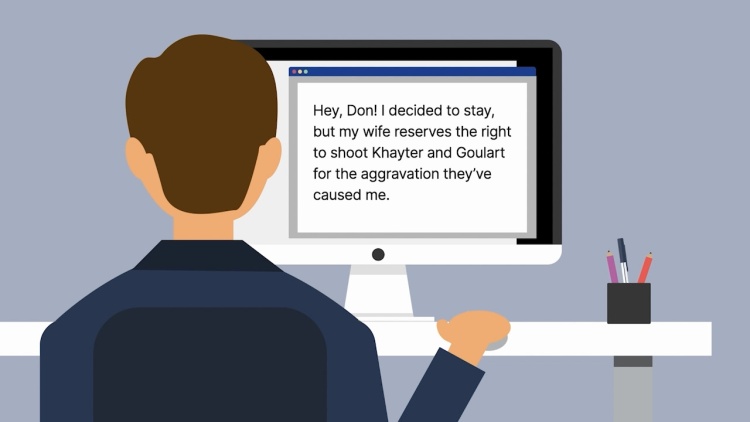Leslie v. Boston Software Collaborative, Inc.
Superior Court of Massachusetts
14 Mass. L. Rptr. 379 (2002)
- Written by Casey Cohen, JD
Facts
Mark Khayter (defendant), Robert Goulart (defendant), and Dennis Leslie (plaintiff) formed Boston Software Collaborative, Inc. (BSC) as a Massachusetts closely-held corporation in 1994. Each of these founding shareholders contributed $200 in capital funds as start-up money, and each received approximately one-third of BSC’s shares. All three became BSC directors. Khayter was BSC’s president and chief executive officer. Goulart was BSC’s clerk. Leslie was BSC’s treasurer and performed administrative and office-management functions. BSC provided technical services in software engineering and billed clients by the hour. Khayter and Goulart billed significantly more hours than Leslie, and they received additional compensation based on their billings. Leslie sought additional compensation, asserting that the office-management tasks should be taken into consideration. However, BSC had received several complaints regarding Leslie, from both employees and clients. The employees claimed that Leslie would make inappropriate comments and overreact to employees. The clients claimed that Leslie did not produce high-quality software engineering when he was assigned to a project. At one point, three key employees threatened to quit due to Leslie’s conduct. In 2000, Leslie considered leaving BSC, but he decided to stay. Leslie wrote an email to another employee expressing his decision to stay. However, Leslie also said that his wife reserved the right to shoot the other two partners. This email was forwarded to Khayter and Goulart. The threat was taken seriously because Leslie had a permit to carry a gun and did so occasionally. Khayter and Goulart placed Leslie on unpaid leave and offered him a separation agreement. The agreement included a severance package with 10 weeks of pay, a potential consulting opportunity, and the potential of BSC looking for contract work for Leslie. Leslie refused to accept the offered separation agreement. Khayter and Goulart then used their position as directors and their shareholding power to dismiss Leslie. Leslie sued Khayter and Goulart for wrongful termination, failing to pay dividends, and freezing Leslie out.
Rule of Law
Issue
Holding and Reasoning (Van Gestel, J.)
What to do next…
Here's why 899,000 law students have relied on our case briefs:
- Written by law professors and practitioners, not other law students. 47,000 briefs, keyed to 994 casebooks. Top-notch customer support.
- The right amount of information, includes the facts, issues, rule of law, holding and reasoning, and any concurrences and dissents.
- Access in your classes, works on your mobile and tablet. Massive library of related video lessons and high quality multiple-choice questions.
- Easy to use, uniform format for every case brief. Written in plain English, not in legalese. Our briefs summarize and simplify; they don’t just repeat the court’s language.





